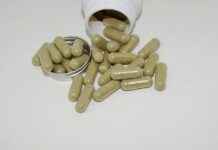This article explores the numerous health benefits of chia seeds, detailing why incorporating them into your daily diet can enhance overall well-being and provide essential nutrients.
Chia seeds are tiny, nutrient-packed seeds derived from the Salvia hispanica plant. Known for their rich history and versatility, they have become a popular superfood in modern diets. These seeds are not only easy to incorporate into meals but also offer a plethora of health benefits that can support various aspects of your well-being.
Chia seeds are classified as a superfood due to their high nutritional profile, which includes:
- Omega-3 fatty acids
- Dietary fiber
- Protein
- Essential minerals
These components contribute significantly to overall health, making them a valuable addition to any diet.
Chia seeds are one of the best plant-based sources of omega-3 fatty acids, which are essential for heart health and reducing inflammation in the body. Regular consumption can lead to:
- Lower cholesterol levels
- Reduced blood pressure
- Decreased risk of heart disease
These seeds are an excellent source of dietary fiber, which aids in digestion, promotes a feeling of fullness, and helps regulate blood sugar levels. The fiber content can also:
- Support weight management
- Improve digestive health
Chia seeds can be beneficial for weight loss due to their high fiber content. When soaked, they form a gel-like consistency that helps you feel fuller for longer, curbing the desire to snack between meals. This effect can lead to:
- Reduced overall calorie intake
- Enhanced weight loss efforts
Chia seeds are packed with essential nutrients, including:
- Protein: A significant amount of plant-based protein makes them an excellent option for vegetarians and vegans.
- Calcium and Magnesium: These minerals support bone health and may help prevent osteoporosis.
- Antioxidants: Help combat oxidative stress in the body.
Adding chia seeds to your daily meals is easy and versatile. Here are some practical ways to enjoy them:
- Chia Seed Pudding: Mix chia seeds with your choice of milk and sweetener, let them soak, and enjoy a nutritious snack.
- Smoothies: Blend them into smoothies for an added nutritional boost.
- Baked Goods: Incorporate them into muffins or bread for enhanced flavor and nutrition.
While chia seeds are generally safe for most people, it’s important to consume them in moderation. Potential side effects include:
- Digestive Issues: Overconsumption without adequate hydration can lead to bloating or discomfort.
- Allergic Reactions: Though rare, some individuals may experience allergies, so monitor your body’s response.
Finding high-quality chia seeds is essential for maximizing their health benefits. Look for:
- Organic, non-GMO varieties
- Reputable sources: Both online retailers and local health food stores offer a variety of options.
To maintain their freshness, store chia seeds in a cool, dry place, preferably in an airtight container away from direct sunlight. By incorporating chia seeds into your diet, you can enjoy a multitude of health benefits while enhancing your overall well-being.
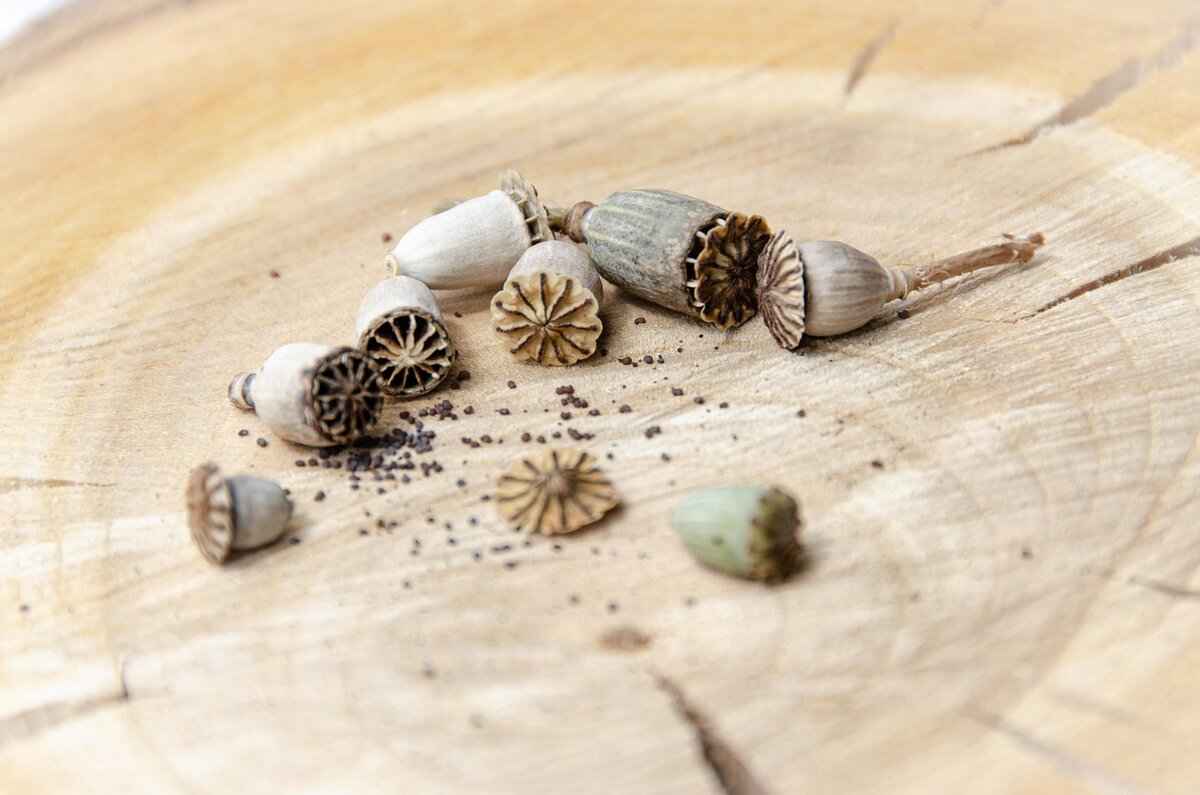
What Are Chia Seeds?
Chia seeds are small, nutrient-dense seeds that originate from the Salvia hispanica plant, a member of the mint family. These seeds have been cultivated for thousands of years, dating back to ancient civilizations in Mexico and Guatemala. They were a vital food source for the Aztecs and Mayans, who recognized their energy-boosting properties and rich nutritional profile. Today, chia seeds have gained immense popularity as a superfood, celebrated for their versatility and health benefits.
Chia seeds are classified as a superfood due to their impressive nutritional composition. They are packed with essential nutrients that contribute to overall health, making them an excellent addition to any diet.
- Omega-3 Fatty Acids: Chia seeds are one of the richest plant-based sources of omega-3 fatty acids, which are vital for heart health and reducing inflammation.
- Dietary Fiber: Each serving of chia seeds contains a significant amount of fiber, aiding in digestion and promoting a healthy gut.
- Protein: Chia seeds provide a good amount of plant-based protein, making them an ideal choice for vegetarians and vegans.
- Vitamins and Minerals: They are rich in calcium, magnesium, phosphorus, and antioxidants, which support various bodily functions.
Incorporating chia seeds into your daily routine can lead to numerous health benefits:
- Heart Health: The omega-3 fatty acids in chia seeds help lower cholesterol levels and reduce the risk of heart disease.
- Weight Management: Their high fiber content promotes satiety, helping to control appetite and reduce overall calorie intake.
- Bone Strength: The calcium and magnesium in chia seeds contribute to bone health, potentially preventing osteoporosis.
- Blood Sugar Control: Chia seeds can help stabilize blood sugar levels, making them beneficial for those with diabetes.
Adding chia seeds to your meals is simple and versatile. Here are some practical ways to enjoy them:
- Chia Pudding: Mix chia seeds with your choice of milk and a sweetener, let them soak overnight, and enjoy a nutritious breakfast or snack.
- Smoothies: Blend chia seeds into your smoothies for an extra boost of nutrients.
- Baked Goods: Incorporate chia seeds into muffins, breads, or energy bars for added texture and nutrition.
While chia seeds are generally safe for most people, moderation is key. Some potential side effects include:
- Digestive Issues: Consuming excessive amounts without adequate hydration can lead to bloating or discomfort.
- Allergic Reactions: Though rare, some individuals may experience allergic reactions, so it’s important to monitor your body’s response.
To maximize the health benefits of chia seeds, choose high-quality, organic, and non-GMO varieties. You can find them in health food stores, supermarkets, or online retailers. Look for seeds that are fresh and stored in airtight containers to maintain their nutritional value.
In conclusion, chia seeds are a powerhouse of nutrients that can significantly enhance your diet. Their health benefits, combined with their versatility in various recipes, make them a valuable addition to a balanced lifestyle.

Why Are Chia Seeds Considered a Superfood?
Chia seeds, derived from the Salvia hispanica plant, have gained immense popularity in recent years, primarily due to their remarkable nutritional profile. These tiny seeds are often labeled as a superfood because they are packed with a variety of essential nutrients that support overall health and well-being. Let’s delve deeper into what makes chia seeds an exceptional addition to your diet.
- High in Omega-3 Fatty Acids: Chia seeds are one of the richest plant-based sources of omega-3 fatty acids, which play a crucial role in maintaining heart health. These fatty acids help reduce inflammation, lower cholesterol levels, and support brain function.
- Rich in Dietary Fiber: With their impressive fiber content, chia seeds can help improve digestion and promote a feeling of fullness, making them beneficial for weight management. Fiber also helps regulate blood sugar levels, which is vital for preventing spikes in energy and mood.
- Protein Powerhouse: Chia seeds contain a significant amount of plant-based protein, which is essential for muscle repair and growth. This makes them an excellent option for vegetarians and vegans looking to meet their protein needs.
- Essential Minerals: Chia seeds are a great source of essential minerals such as calcium, magnesium, and phosphorus, which contribute to bone health and overall metabolic function.
- Antioxidant Properties: These seeds are rich in antioxidants, which help combat oxidative stress in the body, reducing the risk of chronic diseases.
One of the standout features of chia seeds is their ability to absorb liquid and form a gel-like consistency. This unique property not only enhances their versatility in various recipes but also contributes to their weight loss benefits. When consumed, chia seeds can expand in the stomach, promoting satiety and reducing cravings.
Incorporating chia seeds into your daily diet is simple. You can sprinkle them on salads, add them to smoothies, or use them in baking. Their mild flavor allows them to blend seamlessly into both sweet and savory dishes, making them an easy addition to any meal.
Despite their numerous health benefits, it’s essential to consume chia seeds in moderation. Overconsumption can lead to digestive discomfort, especially if not paired with adequate hydration. It’s always wise to start with small amounts and gradually increase your intake to observe how your body responds.
In conclusion, the classification of chia seeds as a superfood is well-deserved. Their high content of omega-3 fatty acids, fiber, protein, and essential minerals makes them a powerhouse of nutrition that can significantly contribute to a healthy lifestyle. Whether you’re looking to boost your heart health, manage your weight, or enhance your overall nutrient intake, chia seeds are an excellent choice that can easily be incorporated into your daily meals.
Rich in Omega-3 Fatty Acids
Chia seeds have gained immense popularity in recent years, and for good reason. These tiny seeds are not only versatile but also packed with nutrients that can significantly enhance your health. One of the standout features of chia seeds is their remarkable content of omega-3 fatty acids, which are crucial for maintaining optimal health.
Omega-3 fatty acids are a type of polyunsaturated fat that is essential for human health. They play a vital role in various bodily functions, including:
- Heart Health: Omega-3s help lower triglyceride levels, reduce blood pressure, and decrease the risk of heart disease.
- Brain Function: These fatty acids are crucial for brain health and can improve cognitive function and memory.
- Inflammation Reduction: Omega-3s have anti-inflammatory properties that can alleviate symptoms of chronic diseases.
Chia seeds are among the best plant-based sources of omega-3 fatty acids, specifically in the form of alpha-linolenic acid (ALA). Regular consumption of chia seeds can significantly contribute to heart health by:
- Lowering Cholesterol: The omega-3s in chia seeds can help reduce levels of LDL cholesterol, often referred to as “bad” cholesterol.
- Improving Blood Pressure: Studies have shown that omega-3s can help lower blood pressure, which is essential for maintaining cardiovascular health.
- Reducing the Risk of Heart Disease: By promoting better cholesterol levels and reducing inflammation, chia seeds can lower the risk of heart-related issues.
The anti-inflammatory properties of omega-3 fatty acids found in chia seeds can be beneficial for individuals suffering from various chronic conditions. Regular intake of these seeds can:
- Alleviate Symptoms of Arthritis: Omega-3s can help reduce joint pain and stiffness associated with arthritis.
- Combat Autoimmune Diseases: The anti-inflammatory effects of omega-3s may help manage symptoms of autoimmune diseases, such as lupus and multiple sclerosis.
Incorporating chia seeds into your daily meals is simple and can enhance your omega-3 intake. Here are some practical ideas:
- Chia Seed Pudding: Mix chia seeds with your choice of milk and let them soak overnight for a delicious breakfast or snack.
- Smoothies: Add chia seeds to your smoothies for an added nutritional boost.
- Baked Goods: Incorporate chia seeds into muffins, breads, and other baked goods for extra texture and nutrients.
While chia seeds are generally safe for most people, it is important to consume them in moderation. Overconsumption can lead to digestive issues, such as bloating or discomfort. Additionally, some individuals may experience allergic reactions, so it’s wise to monitor your body’s response when trying them for the first time.
In conclusion, chia seeds are a powerhouse of nutrients, particularly omega-3 fatty acids, which are essential for heart health and reducing inflammation. By incorporating these tiny seeds into your diet, you can enhance your overall well-being and enjoy a variety of health benefits.
Heart Health Benefits
When it comes to maintaining a healthy heart, dietary choices play a crucial role. Among the various superfoods available, chia seeds stand out due to their impressive nutritional profile. Rich in omega-3 fatty acids, these tiny seeds offer numerous benefits that can significantly improve cardiovascular health.
Omega-3 fatty acids are essential fats that the body cannot produce on its own, making it necessary to obtain them from dietary sources. Chia seeds are one of the best plant-based sources of these crucial nutrients. Here’s how they contribute to heart health:
- Lower Cholesterol Levels: Regular consumption of chia seeds can help reduce levels of LDL cholesterol (the “bad” cholesterol) while increasing HDL cholesterol (the “good” cholesterol). This balance is vital for maintaining a healthy cardiovascular system.
- Blood Pressure Regulation: Omega-3s have been shown to help lower blood pressure, particularly in individuals with hypertension. This reduction can decrease the risk of heart disease and stroke.
- Reduced Inflammation: Chronic inflammation is a significant contributor to heart disease. The anti-inflammatory properties of omega-3 fatty acids can help mitigate this risk, promoting a healthier heart.
While fish and fish oil are commonly recognized as rich sources of omega-3s, chia seeds provide a plant-based alternative that is especially beneficial for vegetarians and vegans. Additionally, chia seeds offer the advantage of being high in fiber and protein, making them a more nutrient-dense option.
To reap the heart health benefits of chia seeds, a daily intake of 1-2 tablespoons is generally recommended. This quantity provides a substantial amount of omega-3 fatty acids without excessive calories. It’s important to consume them in moderation and drink plenty of water, as chia seeds absorb liquid and can expand in your stomach.
Incorporating chia seeds into your daily meals is simple and versatile. Here are a few practical ideas:
- Chia Seed Pudding: Mix chia seeds with your choice of milk and let them soak overnight. Add fruits or sweeteners for a delicious breakfast or snack.
- Smoothies: Blend chia seeds into your favorite smoothies for an added nutritional boost.
- Baked Goods: Incorporate chia seeds into muffins, breads, or granola for a healthy twist.
While chia seeds are generally safe for most people, there are a few considerations to keep in mind. Overconsumption can lead to digestive issues, such as bloating or discomfort, especially if not consumed with enough liquid. Additionally, individuals with known allergies to chia seeds should avoid them.
To maximize the health benefits of chia seeds, it’s essential to choose high-quality products. Look for organic, non-GMO varieties from reputable sources, whether you shop online or at local health food stores. Proper storage is also crucial; keep chia seeds in a cool, dry place in an airtight container to maintain freshness.
In summary, adding chia seeds to your diet can provide significant heart health benefits, thanks to their rich omega-3 fatty acid content. By understanding how to incorporate them into your meals and recognizing their potential risks, you can enhance your overall well-being and support your cardiovascular health.
Anti-Inflammatory Properties
Chia seeds, often hailed as a superfood, are tiny yet powerful seeds that provide a multitude of health benefits. One of their most significant advantages is their ability to combat inflammation, which is crucial for maintaining overall health and well-being. This article delves into the of chia seeds and how they can potentially alleviate symptoms of chronic diseases.
The omega-3 fatty acids found in chia seeds, particularly alpha-linolenic acid (ALA), play a pivotal role in reducing inflammation. These essential fats are known for their ability to modulate inflammatory responses in the body. By consuming chia seeds regularly, individuals may experience a decrease in markers of inflammation, which can be beneficial for those suffering from chronic conditions.
Omega-3 fatty acids are recognized for their potent anti-inflammatory effects. They help to:
- Inhibit inflammatory pathways: Omega-3s can block the production of pro-inflammatory molecules, thereby reducing inflammation.
- Promote the production of anti-inflammatory compounds: These fatty acids encourage the creation of resolvins and protectins, which are molecules that help resolve inflammation.
- Support heart health: By reducing inflammation in blood vessels, omega-3s contribute to lower blood pressure and improved circulation.
Chronic diseases such as arthritis, heart disease, and inflammatory bowel disease (IBD) can significantly impact quality of life. The anti-inflammatory properties of chia seeds may help alleviate symptoms associated with these conditions:
- Arthritis: Regular consumption of chia seeds can help reduce joint pain and stiffness, making daily activities more manageable.
- Heart Disease: By lowering inflammation and improving cholesterol levels, chia seeds can contribute to a healthier heart.
- IBD: The anti-inflammatory effects of omega-3s may help soothe the digestive tract, providing relief from symptoms.
To reap the anti-inflammatory benefits of chia seeds, consider the following ways to incorporate them into your daily meals:
- Chia Seed Smoothies: Blend chia seeds into your favorite smoothies for an extra nutritional boost.
- Overnight Oats: Add chia seeds to your overnight oats for added texture and health benefits.
- Baking: Incorporate chia seeds into baked goods like muffins or bread for a nutritious twist.
While chia seeds are generally safe for most people, moderation is key. Overconsumption can lead to digestive issues, such as bloating or discomfort. It’s essential to drink plenty of water when consuming chia seeds, especially if they are eaten dry, as they can absorb liquid and expand in the digestive tract.
Incorporating chia seeds into your diet can provide significant health benefits, particularly due to their . By adding these tiny seeds to your meals, you can potentially alleviate symptoms of chronic diseases and improve your overall well-being. As with any dietary change, it’s advisable to consult with a healthcare professional, especially if you have existing health conditions.
High in Dietary Fiber
Chia seeds are increasingly recognized as a superfood, and one of the key reasons for this is their remarkable fiber content. This tiny seed packs a powerful punch when it comes to health benefits, particularly in relation to digestion and blood sugar regulation. In this section, we will delve deeper into how chia seeds can enhance your overall health through their high dietary fiber content.
Chia seeds contain approximately 11 grams of fiber per ounce (about 28 grams), making them one of the richest sources of fiber available. This is significant because dietary fiber plays a crucial role in maintaining a healthy digestive system. Fiber can be categorized into two types: soluble and insoluble, and chia seeds contain both.
- Promotes Regularity: The soluble fiber in chia seeds absorbs water, forming a gel-like substance that helps to bulk up stool and promote regular bowel movements.
- Supports Gut Health: Fiber acts as a prebiotic, feeding the beneficial bacteria in the gut, which can improve overall digestive health.
- Reduces Constipation: A high-fiber diet can help prevent constipation and other digestive issues, making chia seeds an excellent addition to your meals.
One of the most notable benefits of chia seeds is their ability to promote satiety. When chia seeds are mixed with liquid, they can expand up to 10-12 times their original size. This expansion creates a gel-like consistency that can help you feel fuller for longer periods, reducing the likelihood of overeating.
In addition to aiding digestion and promoting a feeling of fullness, chia seeds also play a role in regulating blood sugar levels. The high fiber content slows down the absorption of sugar in the bloodstream, which can help stabilize blood sugar levels and prevent spikes and crashes that often lead to cravings and increased hunger.
Incorporating chia seeds into your daily diet is simple and versatile. Here are a few ideas:
- Chia Seed Pudding: Mix chia seeds with your choice of milk and sweetener, let them soak overnight, and enjoy a delicious and nutritious breakfast.
- Smoothies: Add a tablespoon of chia seeds to your smoothies for an extra boost of fiber and nutrients.
- Baked Goods: Incorporate chia seeds into muffins, bread, or energy bars for added texture and nutrition.
While chia seeds are generally safe for most people, it is essential to consume them in moderation. Eating excessive amounts without sufficient hydration can lead to digestive discomfort. It’s advisable to start with a small amount and gradually increase your intake.
In conclusion, the high dietary fiber content in chia seeds offers numerous health benefits, including enhanced digestion, increased feelings of fullness, and improved blood sugar regulation. By incorporating chia seeds into your daily diet, you can enjoy these benefits while adding a nutritious element to your meals.
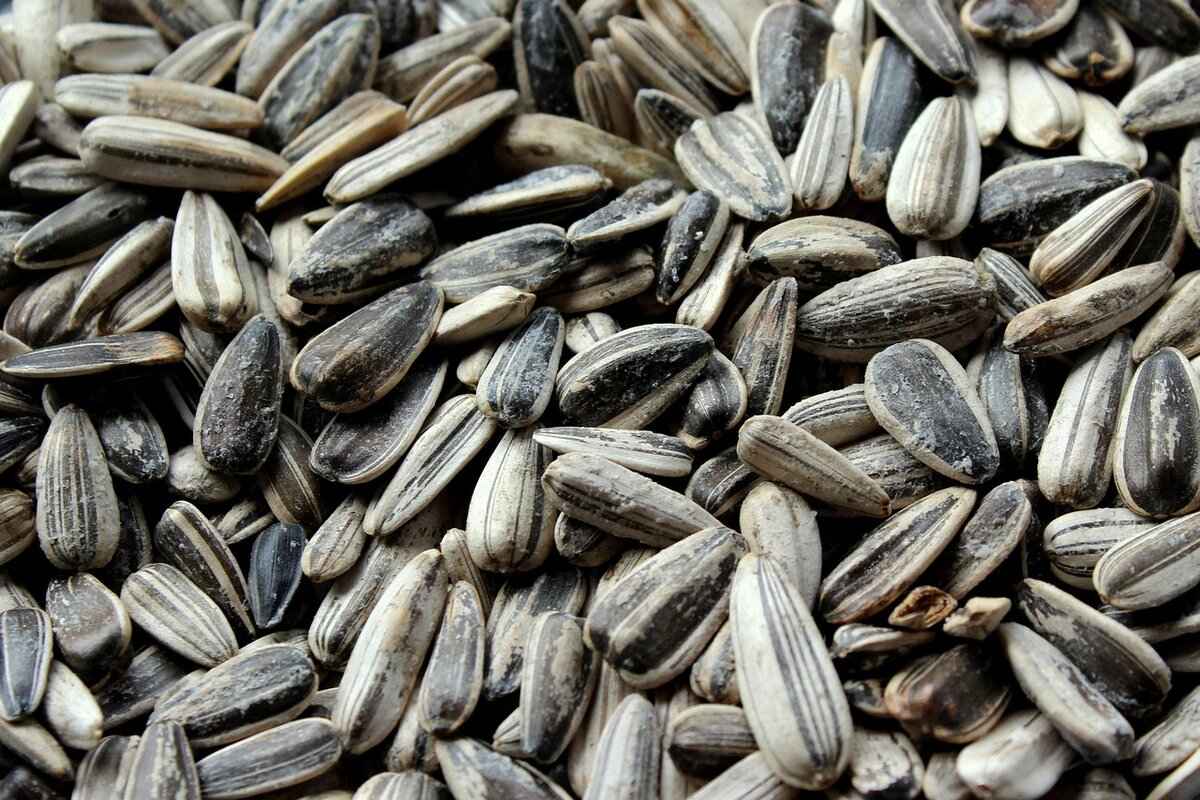
How Do Chia Seeds Aid Weight Loss?
Chia seeds have gained immense popularity in recent years, especially among those looking to lose weight. These tiny seeds, derived from the Salvia hispanica plant, are packed with nutrients and offer a variety of health benefits. One of the most significant advantages of chia seeds is their ability to aid in weight loss. This article delves into the mechanisms by which chia seeds promote weight loss, emphasizing their high fiber content and other nutritional properties.
Chia seeds can be a powerful ally in your weight loss journey due to their remarkable fiber content. This essential nutrient plays a crucial role in promoting feelings of fullness, which can lead to reduced calorie intake throughout the day.
One of the standout features of chia seeds is their impressive fiber content. Just two tablespoons of chia seeds provide approximately 11 grams of fiber, which is about one-third of the daily recommended intake. This high fiber content promotes satiety, which means you feel fuller for longer periods. When consumed, chia seeds absorb liquid and expand in your stomach, creating a gel-like substance that helps curb hunger and reduces the likelihood of snacking between meals.
Another way chia seeds contribute to weight loss is by helping to regulate blood sugar levels. The soluble fiber in chia seeds slows down the digestion of carbohydrates, preventing spikes in blood sugar. This stabilization helps control cravings and keeps your energy levels steady, making it easier to resist unhealthy food choices.
Chia seeds are not only high in fiber but also low in calories, making them a nutrient-dense food. With only about 138 calories per ounce, they provide a wealth of nutrients without the added calories that many other snacks carry. This makes chia seeds an ideal choice for those looking to maintain a healthy weight without sacrificing essential nutrients.
Adding chia seeds to your meals can be simple and enjoyable. They can be sprinkled on salads, blended into smoothies, or mixed into yogurt. One popular way to enjoy chia seeds is by making chia pudding. Simply combine chia seeds with your choice of milk and let them soak overnight. This creates a delicious, satisfying snack that can be flavored with fruits or sweeteners.
Incorporating chia seeds into your diet can lead to tangible results over time. Studies have shown that individuals who consume a high-fiber diet tend to have lower body weight and a reduced risk of obesity. By including chia seeds as part of a balanced diet, you may find it easier to achieve and maintain your weight loss goals.
In addition to their physical benefits, chia seeds can also encourage mindful eating. The process of preparing meals with chia seeds can help you focus on what you’re eating, promoting a healthier relationship with food. By being more aware of your food choices, you can make better decisions that support your weight loss journey.
In conclusion, chia seeds offer a variety of benefits that can significantly aid in weight loss. Their high fiber content promotes satiety, regulates blood sugar levels, and provides a low-calorie, nutrient-dense option for snacking. By incorporating chia seeds into your daily diet, you can enhance your weight loss efforts and improve your overall health.
Promotes Satiety and Reduces Cravings
The remarkable gel-like consistency of chia seeds when soaked in liquid is one of their most significant attributes, making them a powerful ally in managing hunger and cravings. When chia seeds absorb liquid, they swell and form a viscous gel, which expands in the stomach. This expansion creates a sensation of fullness that can significantly reduce the urge to snack between meals.
Many individuals struggle with uncontrolled snacking throughout the day, often leading to excessive calorie consumption. By incorporating chia seeds into your diet, you can effectively curb these cravings. The high fiber content in chia seeds not only aids in digestion but also plays a crucial role in promoting satiety. Fiber takes longer to digest, allowing you to feel fuller for a more extended period and helping to stabilize blood sugar levels.
- How Do Chia Seeds Help You Feel Full?
- What Makes Chia Seeds Unique?
- How to Use Chia Seeds for Weight Management?
When you consume chia seeds, they absorb water and expand. This process means that they can take up more space in your stomach, which signals to your brain that you are full. This natural mechanism can help you avoid unnecessary snacking and manage your weight more effectively.
Unlike many other seeds, chia seeds are rich in omega-3 fatty acids, protein, and antioxidants, which contribute to their health benefits. Their unique composition means they not only help with satiety but also provide essential nutrients that support overall health.
Incorporating chia seeds into your meals is simple. You can add them to smoothies, yogurt, or oatmeal. Alternatively, you can make chia seed pudding by mixing them with your choice of milk and letting them soak overnight. This not only enhances the flavor of your meals but also boosts their nutritional value.
Furthermore, the low-calorie density of chia seeds makes them an excellent choice for those looking to maintain a healthy weight. Despite their nutrient-rich profile, they are low in calories, allowing you to enjoy their benefits without the worry of excessive calorie intake.
In summary, chia seeds are an exceptional food choice for anyone looking to manage their weight and curb cravings. Their ability to promote satiety through their gel-like consistency, combined with their rich nutrient profile, makes them a valuable addition to any diet. By incorporating chia seeds into your meals, you can not only enhance your overall nutrition but also take significant steps toward achieving your health and wellness goals.
Low-Calorie Nutrient Density
is a key concept for anyone aiming to maintain a healthy weight while ensuring they receive adequate nutrition. Chia seeds exemplify this principle, offering a wealth of essential nutrients without the burden of excessive calories.
Chia seeds are tiny but mighty, packed with a variety of nutrients that support overall health. They are incredibly low in calories, with just about 58 calories per tablespoon. Despite their small size, they provide significant amounts of:
- Omega-3 Fatty Acids: Essential for heart health and cognitive function.
- Protein: A vital building block for muscles and tissues.
- Dietary Fiber: Aids in digestion and helps maintain a healthy gut.
- Vitamins and Minerals: Including calcium, magnesium, and phosphorus, which are crucial for bone health.
For those looking to manage their weight, chia seeds provide a unique advantage. Their high fiber content contributes to a feeling of fullness, which can help reduce overall calorie intake. When chia seeds are mixed with liquid, they swell and form a gel-like substance, which can:
- Promote Satiety: Allowing you to feel full longer and reducing the temptation to snack.
- Stabilize Blood Sugar Levels: Preventing spikes and crashes that can lead to cravings.
Adding chia seeds to your meals is simple and versatile. Here are some popular methods:
- Chia Seed Pudding: Mix chia seeds with milk or a dairy-free alternative, sweeten to taste, and let it sit overnight.
- Smoothies: Blend chia seeds into your favorite smoothies for an added nutrient boost.
- Baked Goods: Incorporate chia seeds into muffins, breads, or energy bars for enhanced nutrition without altering flavor.
While chia seeds are generally safe, moderation is key. Overconsumption can lead to digestive issues, such as bloating or discomfort, especially if not consumed with adequate hydration. Additionally, some individuals may experience allergic reactions, so it’s advisable to monitor your body’s response when introducing chia seeds into your diet.
When purchasing chia seeds, opt for organic and non-GMO varieties to ensure you are getting the best quality. Both local health food stores and online retailers offer a wide range of options. Always check for freshness and consider purchasing in bulk to save on costs.
In conclusion, chia seeds are a nutrient-dense food that can support weight management and overall health. Their low-calorie profile combined with high nutritional value makes them an ideal addition to any diet. By incorporating chia seeds into your meals, you can enjoy their numerous health benefits without compromising on taste or nutrition.

What Nutrients Are Found in Chia Seeds?
Chia seeds have gained significant attention in recent years as a powerhouse of nutrition, making them a staple in many health-conscious diets. These tiny seeds are not only versatile but also packed with a variety of essential nutrients that can contribute to overall health and wellness.
Chia seeds are loaded with a range of vital nutrients, including:
- Protein: Chia seeds contain about 4 grams of protein per ounce, providing a plant-based source of this essential nutrient. This makes them an excellent choice for vegetarians and vegans looking to increase their protein intake.
- Calcium: With approximately 18% of the recommended daily intake per ounce, chia seeds are a great source of calcium, which is crucial for maintaining strong bones and teeth.
- Magnesium: Each serving also delivers a significant amount of magnesium, an important mineral that supports muscle function, nerve function, and energy production.
- Antioxidants: Chia seeds are rich in antioxidants, which help combat oxidative stress in the body and may reduce the risk of chronic diseases.
- Omega-3 Fatty Acids: These seeds are one of the best plant-based sources of omega-3 fatty acids, particularly alpha-linolenic acid (ALA), which is essential for heart health.
- Dietary Fiber: Chia seeds are an excellent source of fiber, containing about 11 grams per ounce, which aids in digestion and promotes a feeling of fullness.
The combination of nutrients found in chia seeds contributes to various health benefits:
- Supports Bone Health: The calcium and magnesium in chia seeds work together to strengthen bones and may help prevent osteoporosis.
- Enhances Digestive Health: The high fiber content promotes regular bowel movements and can help alleviate constipation.
- Boosts Heart Health: Omega-3 fatty acids and antioxidants work synergistically to lower inflammation, reduce cholesterol levels, and support overall cardiovascular health.
- Aids in Weight Management: The fiber in chia seeds can help you feel full longer, reducing overall calorie intake and helping with weight loss efforts.
Yes, chia seeds provide a complete protein source, containing all nine essential amino acids. This makes them an excellent addition to a plant-based diet, especially for those who may struggle to get enough protein from other sources.
Incorporating chia seeds into your daily meals is simple and can enhance the nutritional value of your diet. Here are a few ideas:
- Add to Smoothies: Blend chia seeds into your smoothies for an extra boost of nutrients.
- Make Chia Pudding: Combine chia seeds with your choice of milk and sweetener, let it sit overnight, and enjoy a delicious, healthy snack.
- Sprinkle on Salads: Add a tablespoon of chia seeds to your salads for added crunch and nutrition.
In summary, chia seeds are a highly nutritious food that provides numerous health benefits. With their rich profile of protein, calcium, magnesium, and antioxidants, they can easily be incorporated into a variety of dishes, making them a convenient choice for enhancing your overall health.
Protein Content and Its Benefits
Chia seeds are increasingly recognized for their impressive nutritional profile, particularly their protein content. These tiny seeds, derived from the Salvia hispanica plant, are a powerhouse of essential nutrients, making them a favorite among health enthusiasts, especially vegetarians and vegans.
Protein is an essential macronutrient that plays a crucial role in numerous bodily functions, including:
- Muscle Repair: It aids in the recovery and growth of muscles after exercise.
- Immune Function: Proteins are vital for building and repairing tissues, including those involved in immune responses.
- Hormone Production: Many hormones are proteins, and they help regulate various physiological processes.
Chia seeds are remarkably rich in protein, containing about 4 grams of protein per 2 tablespoons. This makes them an excellent source of plant-based protein, especially when compared to other seeds and grains. Their unique composition not only provides protein but also includes all nine essential amino acids, which are crucial for the body’s functionality.
Incorporating chia seeds into your diet can offer a variety of health benefits:
- Supports Muscle Mass: For those engaging in regular physical activity, the protein in chia seeds can help maintain and build muscle mass.
- Enhances Satiety: The high protein content can help you feel fuller for longer, which may assist in weight management by reducing overall calorie intake.
- Balances Blood Sugar: Protein can help stabilize blood sugar levels, making chia seeds a great addition to meals for those managing diabetes.
Adding chia seeds to your meals is simple and versatile. Here are some effective ways to incorporate them:
- Chia Seed Pudding: Mix chia seeds with your choice of milk and let them soak overnight to create a delicious pudding.
- Smoothies: Blend chia seeds into your smoothies for an added protein boost.
- Baked Goods: Incorporate chia seeds into muffins, breads, or pancakes for added nutrition.
While chia seeds are generally safe and beneficial, moderation is key. Overconsumption can lead to digestive discomfort due to their high fiber content. It’s essential to drink plenty of water when consuming them to avoid issues such as bloating or gas.
Chia seeds are a fantastic source of plant-based protein that can greatly benefit vegetarians and vegans in meeting their protein needs. With their numerous health benefits, ease of incorporation into various dishes, and minimal drawbacks, they are undoubtedly a worthy addition to any diet.
Minerals for Bone Health
Chia seeds, often celebrated as a superfood, are not only versatile and easy to incorporate into your diet but also packed with essential nutrients that promote overall health. Among their many benefits, the minerals calcium and magnesium stand out for their crucial role in supporting bone health. This article explores how these minerals contribute to maintaining strong bones and preventing conditions like osteoporosis, particularly in individuals who may have dietary restrictions.
Calcium and magnesium are vital minerals that work synergistically to enhance bone density and strength. Calcium is the most abundant mineral in the body and is a primary component of bone tissue. It is crucial for the development and maintenance of healthy bones. On the other hand, magnesium plays a critical role in converting vitamin D into its active form, which is essential for calcium absorption. Without adequate magnesium, the body cannot effectively utilize calcium, leading to potential deficiencies.
Chia seeds are an excellent source of both calcium and magnesium. Just two tablespoons of chia seeds provide approximately 18% of the daily recommended intake of calcium and about 30% of the daily recommended intake of magnesium. This makes them a fantastic addition to the diets of individuals who may not consume enough dairy products or leafy greens, such as vegans or those with lactose intolerance.
Osteoporosis is a condition characterized by weakened bones and an increased risk of fractures. It is particularly prevalent among older adults and postmenopausal women. By incorporating chia seeds into their diet, individuals can bolster their calcium and magnesium intake, which may help mitigate the risk of developing osteoporosis. Research indicates that adequate intake of these minerals during the formative years and throughout adulthood can significantly reduce the likelihood of bone density loss.
- Chia Seed Smoothies: Blend chia seeds into your favorite smoothies for a nutritious boost.
- Chia Pudding: Soak chia seeds in almond milk or coconut milk to create a delicious pudding, rich in calcium and magnesium.
- Sprinkle on Salads: Add chia seeds to salads or yogurt for a crunchy texture and added nutrients.
In addition to their bone health benefits, chia seeds are rich in omega-3 fatty acids, antioxidants, and dietary fiber, making them a powerhouse of nutrition. The omega-3s found in chia seeds can help reduce inflammation, while the fiber content aids in digestion and promotes a feeling of fullness, which can be beneficial for weight management.
In summary, chia seeds are a remarkable source of calcium and magnesium, essential minerals for maintaining bone health and preventing osteoporosis. Their versatility makes them easy to include in various dishes, ensuring that individuals with dietary restrictions can still meet their nutritional needs. By adding chia seeds to your daily diet, you can take a proactive step toward enhancing your overall health and well-being.

How to Incorporate Chia Seeds into Your Diet?
Incorporating chia seeds into your daily meals is not only simple but also a delicious way to enhance the nutritional value of your diet. These tiny seeds are incredibly versatile, allowing you to use them in a variety of dishes and beverages. Here are some effective methods to add chia seeds to your meals:
- Sprinkling on Salads: One of the easiest ways to enjoy chia seeds is by sprinkling them on top of salads. They add a delightful crunch and a boost of nutrients without altering the flavor of your dish.
- Mixing into Smoothies: Chia seeds can be blended into your favorite smoothies. They not only thicken the smoothie but also provide a rich source of omega-3 fatty acids, protein, and fiber.
- Creating Chia Seed Pudding: Chia seed pudding is a popular and nutritious snack. To make it, combine chia seeds with your choice of milk (dairy or plant-based) and a sweetener of your choice. Let it sit in the refrigerator for a few hours or overnight until it achieves a gel-like consistency.
- Adding to Baked Goods: Chia seeds can be incorporated into baked goods such as muffins, bread, and pancakes. They blend seamlessly into the batter, enhancing the nutritional profile without affecting the taste.
- Using as an Egg Substitute: For those following a vegan diet, chia seeds can serve as an excellent egg substitute. Mix one tablespoon of chia seeds with three tablespoons of water, let it sit for a few minutes to thicken, and use it in recipes that require eggs.
- Incorporating into Yogurt: Stir chia seeds into your yogurt for added texture and nutrition. This combination makes for a satisfying breakfast or snack option.
What Are the Benefits of Adding Chia Seeds to Your Meals?
Adding chia seeds to your meals not only boosts the nutritional content but also offers numerous health benefits. They are a great source of fiber, which aids in digestion and helps maintain a healthy weight by promoting a feeling of fullness. Additionally, chia seeds are rich in antioxidants, which help combat oxidative stress in the body.
How Much Chia Seeds Should You Consume Daily?
While chia seeds are beneficial, moderation is key. A typical serving size is about 1 to 2 tablespoons per day. This amount provides a significant dose of nutrients without overwhelming your digestive system.
Are There Any Precautions to Consider?
When incorporating chia seeds into your diet, it’s essential to drink plenty of water, as they absorb liquid and can expand in your stomach. This can help prevent any potential digestive discomfort. If you’re new to chia seeds, start with a small amount and gradually increase your intake to allow your body to adjust.
In conclusion, adding chia seeds to your daily meals is a straightforward and effective way to enhance your diet. With their numerous health benefits and versatile applications, these tiny seeds can be a delightful addition to your culinary repertoire. Whether you choose to sprinkle them on salads, blend them into smoothies, or create delicious puddings, chia seeds can help you achieve your nutritional goals effortlessly.
Chia Seed Pudding Recipes
Chia seed pudding has gained immense popularity as a versatile and nutritious snack, perfect for any time of the day. This simple yet delightful dish allows you to enjoy the numerous health benefits of chia seeds while indulging in a tasty treat. By combining chia seeds with your choice of milk and a sweetener, you create a creamy, satisfying pudding that is both delicious and nutritious.
Chia seed pudding is not only easy to prepare but also offers a plethora of health benefits. Here are some reasons to incorporate chia seed pudding into your diet:
- High in Nutrients: Chia seeds are packed with omega-3 fatty acids, fiber, protein, and essential minerals.
- Weight Management: The high fiber content promotes satiety, helping you feel full longer.
- Easy to Prepare: Chia seed pudding requires minimal effort and can be made in advance for a quick snack.
To make a basic chia seed pudding, follow these simple steps:
Ingredients:- 1/4 cup chia seeds- 1 cup milk (dairy or plant-based)- 1-2 tablespoons sweetener (honey, maple syrup, or agave)- 1/2 teaspoon vanilla extract (optional)Instructions:1. In a bowl, combine chia seeds, milk, sweetener, and vanilla extract.2. Stir well to ensure the chia seeds are evenly distributed.3. Cover and refrigerate for at least 2 hours or overnight.4. Once thickened, stir again and serve with your favorite toppings.
Chia seed pudding is incredibly versatile, allowing you to customize flavors to suit your taste. Here are a few delicious variations:
- Chocolate Chia Seed Pudding: Add 2 tablespoons of cocoa powder and a bit more sweetener for a rich chocolate flavor.
- Berry Bliss: Mix in fresh or frozen berries before refrigerating for a fruity twist.
- Coconut Delight: Use coconut milk and top with shredded coconut for a tropical experience.
Enhance your chia seed pudding with various toppings that add flavor and nutrition:
- Fresh Fruits: Bananas, strawberries, and kiwi add natural sweetness and vitamins.
- Nuts and Seeds: Almonds, walnuts, or pumpkin seeds provide healthy fats and crunch.
- Granola: A sprinkle of granola adds texture and additional fiber.
Chia seed pudding can be enjoyed at any time of the day. Here are some ideas:
- Breakfast: A nutritious start to your day.
- Snack: A satisfying afternoon pick-me-up.
- Dessert: A guilt-free sweet treat after dinner.
In conclusion, chia seed pudding is a fantastic way to incorporate the health benefits of chia seeds into your diet. With endless flavor possibilities and easy preparation, it’s a perfect choice for anyone looking to enhance their nutrition without sacrificing taste.
Adding to Smoothies and Baked Goods
Adding Chia Seeds to Smoothies and Baked Goods can significantly enhance both the nutritional value and flavor of your meals. These tiny seeds are incredibly versatile and can be easily incorporated into various recipes without altering the texture. Here’s how you can use chia seeds effectively in your daily diet.
Chia seeds are an excellent addition to smoothies for several reasons:
- Nutritional Boost: Chia seeds are packed with omega-3 fatty acids, fiber, and protein, making your smoothie not just delicious but also nutritious.
- Thickening Agent: When soaked, chia seeds absorb liquid and form a gel-like consistency, which can help thicken your smoothie, giving it a satisfying texture.
- Flavor Neutrality: Their mild flavor means they won’t overpower the taste of your favorite fruits and vegetables.
Here are some simple ways to add chia seeds to your smoothies:
- Soaking Method: Soak 1-2 tablespoons of chia seeds in water or your choice of milk for about 10-15 minutes before blending. This helps them expand and blend smoothly.
- Direct Addition: You can also add dry chia seeds directly to your smoothie. Just blend them well to ensure they are evenly distributed.
- Flavor Combinations: Combine chia seeds with fruits such as bananas, berries, or spinach for a nutrient-dense smoothie that keeps you energized throughout the day.
Chia seeds can also be seamlessly integrated into baked goods, enhancing their nutritional profile without compromising taste or texture. Here’s how:
- Egg Substitute: For vegans or those avoiding eggs, chia seeds can serve as an excellent egg replacement. Mix 1 tablespoon of chia seeds with 2.5 tablespoons of water, let it sit for 15 minutes, and use it as you would an egg in recipes.
- Boosting Fiber Content: Adding chia seeds to muffins, bread, or pancakes increases the fiber content, promoting better digestion and satiety.
- Texture Enhancement: Chia seeds add a delightful crunch to baked goods, making them more enjoyable to eat.
To maximize the benefits of chia seeds in your smoothies and baked goods, consider the following tips:
- Start Small: If you’re new to chia seeds, start with small amounts and gradually increase as you get accustomed to their texture and benefits.
- Experiment with Recipes: Don’t hesitate to try different recipes. Chia seeds can be incorporated into everything from energy bars to salad dressings.
- Storage: Keep chia seeds in an airtight container in a cool, dry place to maintain their freshness and nutritional value.
Incorporating chia seeds into your smoothies and baked goods is a simple yet effective way to enhance your diet. With their myriad of health benefits and versatility, these tiny seeds can become a staple in your kitchen, helping you achieve your nutritional goals.
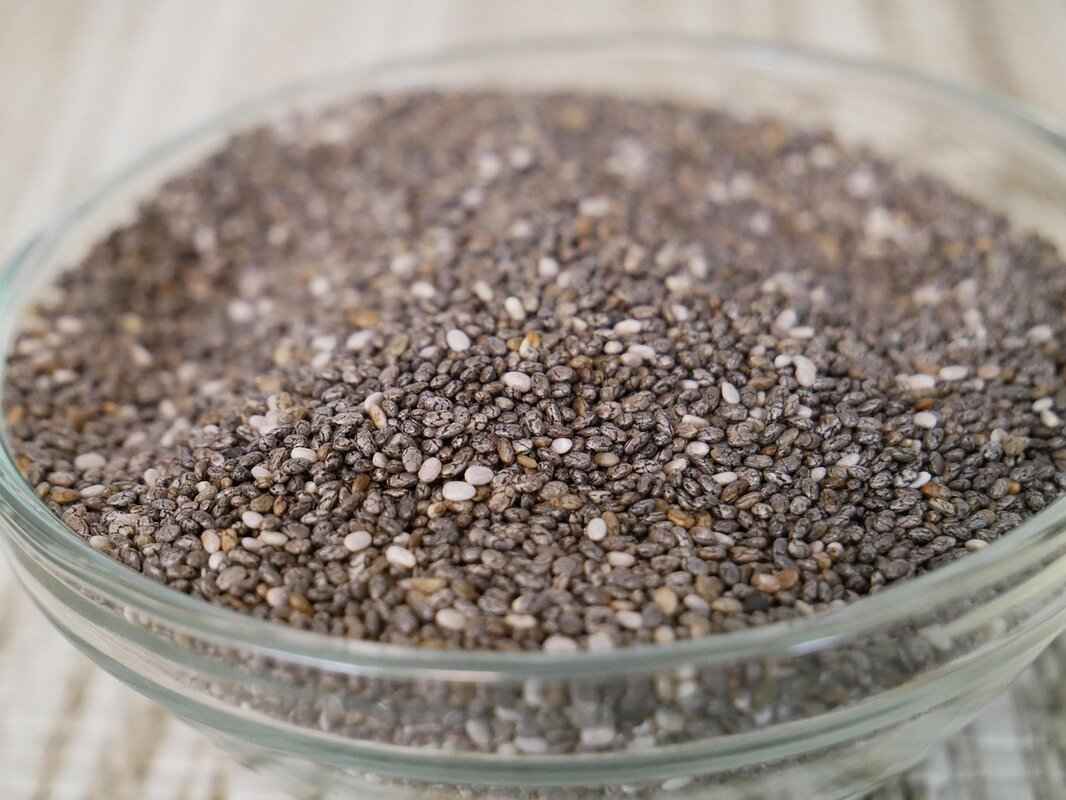
Are There Any Side Effects of Eating Chia Seeds?
Chia seeds have gained immense popularity as a nutritious superfood, but like any food, they come with their own set of considerations. Understanding the potential side effects of consuming chia seeds is essential for making informed dietary choices. This article will delve into the possible side effects of chia seeds and provide practical advice on how to enjoy them safely.
While chia seeds are generally regarded as safe for most individuals, it is crucial to consume them in moderation to avoid potential adverse effects. Here are some important considerations:
One of the most common side effects of consuming excessive amounts of chia seeds is digestive discomfort. Chia seeds are rich in dietary fiber, which can be beneficial for digestive health, but too much fiber can lead to issues such as:
- Bloating
- Gas
- Stomach cramps
To mitigate these effects, it is advisable to gradually increase your chia seed intake and ensure you are drinking plenty of water. Chia seeds can absorb up to 12 times their weight in liquid, so adequate hydration is essential.
Though rare, some individuals may experience allergic reactions to chia seeds. Symptoms can include:
- Rashes
- Itching
- Swelling
If you are trying chia seeds for the first time, it is wise to start with a small amount and monitor your body’s response. If any adverse reactions occur, discontinue use and consult a healthcare professional.
Chia seeds may also interact with certain medications, particularly those that affect blood sugar and blood pressure levels. Due to their high fiber and omega-3 content, chia seeds could potentially enhance the effects of these medications, leading to:
- Hypoglycemia (low blood sugar)
- Hypotension (low blood pressure)
If you are on medication for diabetes or hypertension, it is crucial to consult with your healthcare provider before adding chia seeds to your diet.
Chia seeds can pose a choking risk if consumed dry or in large quantities without adequate liquid. This risk is particularly relevant for:
- Children
- Individuals with swallowing difficulties
To avoid this hazard, always soak chia seeds in water or another liquid before consumption, allowing them to expand and develop a gel-like consistency.
To enjoy the health benefits of chia seeds while minimizing potential side effects, consider the following tips:
- Start Small: Begin with 1 tablespoon of chia seeds per day and gradually increase your intake.
- Stay Hydrated: Drink plenty of water when consuming chia seeds to aid digestion.
- Incorporate into Recipes: Use chia seeds in smoothies, puddings, or baked goods to ensure they are consumed with adequate moisture.
By following these guidelines, you can safely incorporate chia seeds into your diet and enjoy their numerous health benefits without experiencing unwanted side effects.
Digestive Issues from Overconsumption
Chia seeds are often celebrated for their numerous health benefits, but it’s crucial to consume them wisely. One significant consideration is the potential for digestive issues that can arise from overconsumption, particularly when not paired with adequate hydration. Understanding how to incorporate chia seeds into your diet effectively is essential for maximizing their benefits while minimizing discomfort.
What Happens When You Eat Too Many Chia Seeds?
Chia seeds are rich in soluble fiber, which can absorb liquid and expand in the stomach. When consumed in excess, they can lead to bloating, gas, and discomfort. This is primarily because the seeds can absorb up to 12 times their weight in water, creating a gel-like substance in the digestive tract. If you’re not drinking enough fluids, this can lead to a feeling of fullness that may be uncomfortable. Therefore, it’s imperative to maintain a balance.
How Much is Too Much?
- For most individuals, consuming 1 to 2 tablespoons of chia seeds daily is sufficient to reap their health benefits.
- Exceeding this amount, especially without proper hydration, can result in digestive discomfort.
Hydration: The Key to Enjoying Chia Seeds
To prevent digestive issues, it’s vital to pair chia seeds with plenty of fluids. When you consume chia seeds, consider the following:
- Soak them in water or your favorite beverage for at least 30 minutes before consuming. This allows them to expand and hydrate, making them easier to digest.
- Drink additional water throughout the day to help the seeds move smoothly through your digestive system.
Signs of Overconsumption
Be aware of the signs that may indicate you’ve consumed too many chia seeds:
- Feeling overly full or bloated
- Experiencing gas or abdominal discomfort
- Changes in bowel movements, such as constipation or diarrhea
If you notice any of these symptoms, it may be wise to reduce your intake and ensure you are adequately hydrated. Listening to your body is crucial in determining the right amount of chia seeds for your individual needs.
Consulting a Healthcare Professional
If you have existing digestive issues or concerns about how chia seeds may affect you, consulting with a healthcare professional or a registered dietitian is advisable. They can provide personalized recommendations based on your health status and dietary needs.
In summary, while chia seeds can offer numerous health benefits, moderation and proper hydration are key to avoiding digestive discomfort. By understanding how to incorporate them into your diet effectively, you can enjoy their nutritional advantages without the unwanted side effects.
Potential Allergic Reactions
When exploring the health benefits of chia seeds, it’s important to consider all aspects, including potential side effects. One area of concern for some individuals is the possibility of allergic reactions to these tiny superfoods. While chia seeds are generally safe for most people, understanding the risks is crucial for anyone looking to incorporate them into their diet.
Allergic reactions to chia seeds, though rare, can occur. Symptoms may vary from mild to severe and can include:
- Skin reactions: Hives, rashes, or itching.
- Gastrointestinal issues: Nausea, vomiting, or diarrhea.
- Respiratory problems: Difficulty breathing or swelling of the throat.
It is essential to monitor your body’s response when trying chia seeds for the first time, as reactions can differ from person to person.
Individuals with a history of food allergies or those who are allergic to other seeds, such as sesame or flaxseed, may be at a higher risk of developing an allergy to chia seeds. If you have known sensitivities, it is advisable to consult a healthcare professional before adding chia seeds to your diet.
In the event of an allergic reaction, it is crucial to take immediate action:
- Stop consuming chia seeds: Discontinue use immediately.
- Seek medical attention: If symptoms are severe, such as difficulty breathing, call emergency services.
- Document your reaction: Keep a record of the symptoms and the amount consumed for future reference.
To minimize the risk of an allergic reaction, consider the following tips:
- Start small: Introduce chia seeds gradually into your diet, beginning with a small amount to see how your body reacts.
- Monitor your body: Pay attention to any unusual symptoms after consumption.
- Consult a professional: If you have any concerns, speak with a doctor or nutritionist.
While chia seeds offer numerous health benefits, being aware of potential allergic reactions is vital. By taking precautions and monitoring your body’s response, you can safely enjoy the nutritional advantages of this superfood. Always prioritize your health and consult with a healthcare provider if you have any doubts or experience adverse reactions.
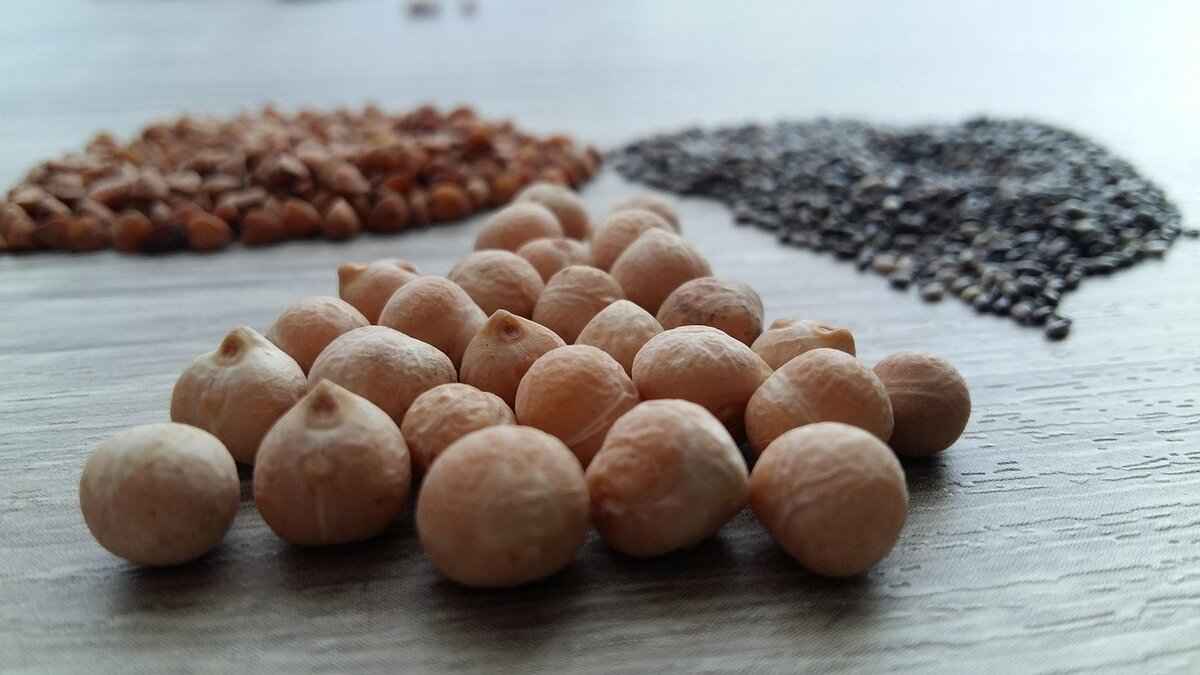
Where to Buy Quality Chia Seeds?
When it comes to incorporating chia seeds into your diet, the quality of the seeds you choose can significantly impact their health benefits. Finding high-quality chia seeds is essential for maximizing their health benefits; look for organic, non-GMO varieties from reputable sources. This article will guide you on how to find the best chia seeds available, ensuring you enjoy their full nutritional potential.
Chia seeds are rich in nutrients, but not all chia seeds are created equal. Quality matters because inferior seeds may contain contaminants or lack the nutritional density that premium seeds offer. Organic chia seeds, for example, are grown without synthetic fertilizers or pesticides, making them a healthier choice.
- Online Retailers: Numerous online platforms offer a wide variety of chia seeds, often with the option to read customer reviews. Look for brands that provide detailed product descriptions and certifications.
- Local Health Food Stores: Visiting local health food stores allows you to inspect the packaging and sometimes even sample the seeds. Staff at these stores are often knowledgeable and can recommend high-quality options.
- Farmers’ Markets: Purchasing chia seeds from local farmers’ markets can be a great way to find organic options while supporting local agriculture. You can ask the farmers about their growing practices directly.
When shopping for chia seeds, consider the following factors to ensure you are selecting high-quality products:
- Certification: Look for seeds that are certified organic and non-GMO. This certification indicates that the seeds are free from harmful chemicals and genetically modified organisms.
- Packaging: Choose seeds that are packaged in airtight containers to maintain freshness. Avoid products that are sold in bulk bins unless you can verify their quality.
- Color and Texture: High-quality chia seeds are typically shiny and have a consistent color. Avoid seeds that appear dull or have an unusual texture.
To maintain the freshness and nutritional value of your chia seeds, proper storage is crucial. Here are some tips:
- Airtight Containers: Store chia seeds in an airtight container to prevent moisture and air from degrading their quality.
- Cool, Dark Places: Keep your chia seeds in a cool, dark place, such as a pantry or cupboard, away from direct sunlight.
- Refrigeration: For extended shelf life, consider refrigerating your chia seeds. This can help preserve their omega-3 fatty acids and prevent rancidity.
Several brands are renowned for their high-quality chia seeds. Some of the most reputable include:
- Nutiva: Known for their organic products, Nutiva offers high-quality chia seeds that are widely available.
- Terrasoul Superfoods: This brand focuses on organic and non-GMO seeds, ensuring you get a nutritious product.
- Healthworks: Healthworks chia seeds are known for their great quality and are often praised for their freshness.
In summary, finding high-quality chia seeds is crucial to unlocking their full health benefits. By prioritizing organic, non-GMO varieties from reputable sources, you can ensure that you are getting the most out of this superfood.
Online vs. Local Stores
When it comes to purchasing chia seeds, consumers today have a wealth of options at their disposal. Both online retailers and local health food stores provide a variety of chia seed products, catering to different preferences and needs. This article will explore the advantages and disadvantages of each option, helping you make an informed decision.
Shopping for chia seeds online can be a convenient choice for many consumers. Here are some key benefits:
- Wide Selection: Online stores often carry a broader range of products, including organic, non-GMO, and specialty chia seeds.
- Competitive Prices: Online retailers frequently offer competitive pricing and discounts that can lead to significant savings.
- Convenience: You can shop from the comfort of your home and have your chia seeds delivered directly to your door, saving you time and effort.
- Customer Reviews: Online platforms often feature customer reviews and ratings, providing insights into product quality and user experiences.
While online shopping has its perks, purchasing chia seeds from local health food stores also presents unique advantages:
- Freshness: Local stores typically stock fresher products, as they have a quicker turnover rate compared to online retailers.
- Personal Interaction: You can ask store staff for recommendations, helping you choose the best product for your needs.
- Support Local Businesses: Buying from local stores helps support your community and local economy.
- Immediate Availability: You can purchase your chia seeds immediately without waiting for shipping, allowing you to start incorporating them into your diet right away.
When deciding where to buy chia seeds, consider the following factors:
- Price: Compare prices between online and local options to ensure you are getting the best deal.
- Quality: Look for reputable brands and check for certifications, such as organic and non-GMO labeling.
- Shipping Costs: If purchasing online, factor in shipping fees, which can affect the overall cost.
- Product Variety: Assess whether you need a specific type of chia seed that may only be available at certain retailers.
Regardless of where you choose to buy your chia seeds, here are some tips to maximize your purchase:
- Buy in Bulk: If you find a quality product that you enjoy, consider buying in bulk to save money in the long run.
- Check Expiration Dates: Always check the expiration date to ensure you’re purchasing fresh seeds.
- Store Properly: After buying, store your chia seeds in a cool, dry place in an airtight container to maintain their freshness.
In conclusion, both online retailers and local health food stores offer unique advantages when it comes to buying chia seeds. By weighing the benefits of each and considering your personal preferences, you can make an informed choice that suits your lifestyle and dietary needs.
How to Store Chia Seeds for Freshness
Proper storage of chia seeds is crucial to preserving their freshness and nutritional value. These tiny powerhouses are packed with essential nutrients, and ensuring they remain in optimal condition will help you reap their full benefits. Here are some guidelines on how to store chia seeds effectively.
Chia seeds are sensitive to environmental factors such as moisture, light, and heat. When exposed to these elements, they can lose their nutritional quality and flavor. Proper storage not only extends their shelf life but also maintains their beneficial properties, making it essential for anyone looking to incorporate chia seeds into their diet.
- Use Airtight Containers: Store chia seeds in an airtight container to prevent moisture and air exposure. Glass jars or plastic containers with tight seals work well.
- Keep Them Cool: A cool environment is ideal for storing chia seeds. Consider placing them in a pantry or a kitchen cabinet away from heat sources.
- Avoid Direct Sunlight: Sunlight can degrade the quality of chia seeds over time. Always store them in a dark place or in opaque containers to protect them from light.
When stored properly, chia seeds can last for up to two years without losing their nutritional value. However, always check for any signs of spoilage, such as an off smell or unusual color, before consumption.
Refrigerating or freezing chia seeds is not necessary but can be beneficial if you live in a particularly hot climate. Cold storage can help maintain their freshness for an extended period. If you choose to freeze them, ensure they are in an airtight container to prevent moisture from entering.
Before using chia seeds, it’s important to check their freshness. Signs that chia seeds may have gone bad include:
- Unpleasant Odor: Fresh chia seeds have a neutral smell. A rancid odor indicates spoilage.
- Change in Color: Fresh seeds are usually a dark brown or black color. Any discoloration may suggest they are no longer good.
- Texture Changes: If the seeds feel sticky or clump together, they may have absorbed moisture and should be discarded.
Storing chia seeds properly is essential for maintaining their freshness and nutritional benefits. By following these simple guidelines, you can ensure that your chia seeds remain a healthy addition to your diet for a long time. Remember to always check for signs of spoilage before use, and enjoy the numerous health benefits these superfoods have to offer!
Frequently Asked Questions
- How many chia seeds should I eat daily?
It’s generally recommended to consume about 1 to 2 tablespoons of chia seeds per day. This amount provides a good balance of nutrients without overwhelming your digestive system.
- Can chia seeds help with hydration?
Yes! Chia seeds can absorb up to 12 times their weight in water, which can help keep you hydrated. Just remember to drink plenty of water when consuming them!
- Are chia seeds safe for everyone?
While chia seeds are safe for most people, those with certain allergies or digestive issues should consult a healthcare professional before adding them to their diet.
- How should I store chia seeds?
To keep your chia seeds fresh, store them in an airtight container in a cool, dry place. Avoid direct sunlight to maintain their nutritional value.
- Can I eat chia seeds if I’m pregnant?
Chia seeds can be a nutritious addition during pregnancy, but it’s best to consult with your doctor to ensure they fit into your overall dietary plan.



